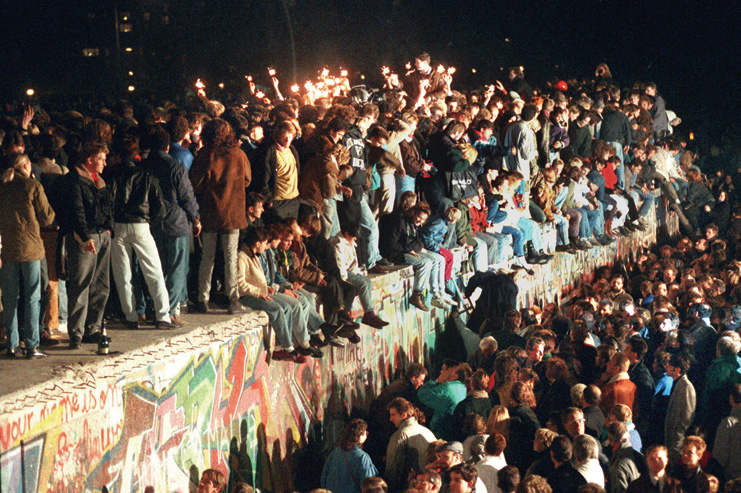Guest post by Dániel Kiss
Photo credit to DPA/ZUMA Press.
When the Berlin Wall fell in November 1989, I was in my fourth year of primary school in Budapest, Hungary. I was too young to understand politics, but I do remember the excitement of the adults around me during that eventful year. What I do have clear memories of is how the end of Communism affected my life as a schoolboy.![]()
![]()
At the start of my first year at school, my classmates and I had entered the Young Pioneers, the Communist youth organisation, which all youngsters in the country effectively had to join. Our parents bought us a uniform consisting of an awkward white shirt, dark trousers, a blue nylon scarf, and a smart whistle of which I was very fond. We formed brigades each with a leader and a name; I recall that one of them was called the Panda Brigade. Occasionally we would have to stand in formation, listen as our brigade leaders delivered formal reports to our teachers, or march around to patriotic music in our gym hall on special days such as 4 April, the day of the liberation of Hungary by the Red Army after World War II. These events had a strange atmosphere of make-believe, as the adults leading them seemed to lack all passion and conviction. But these ceremonies gradually petered out without explanation, and at one point (I think it was at the start of my fourth schoolyear in September 1989) our activities as pioneers too came to an unexplained end. Soon afterwards Hungary started preparing for its first political elections, with a burgeoning growth of political parties of all sorts, and my classmates and I joined the fun by founding, naming, dividing and uniting parties among ourselves.
Hungary had a softer brand of Communism than East Germany and its fall was less spectacular, but the basic reason for which it collapsed was very likely the same: Communism had been imposed by force on the countries occupied by the Soviet army since the end of World War II, and when the Soviets relaxed their hold, these countries shook off the Communist system one way or other. In Hungary Communism is probably gone for ever, as it is widely regarded as disgraceful and ridiculous. However, its heritage still survives in a large but inefficient and corrupt state sector, in an atomized, weakly organised society, and in people’s distrust of capitalism. Communism may have collapsed quickly, but we are still tidying up its ruins.
Dániel Kiss is a postdoctoral research fellow in classics at University College Dublin. His hometown is Budapest.
